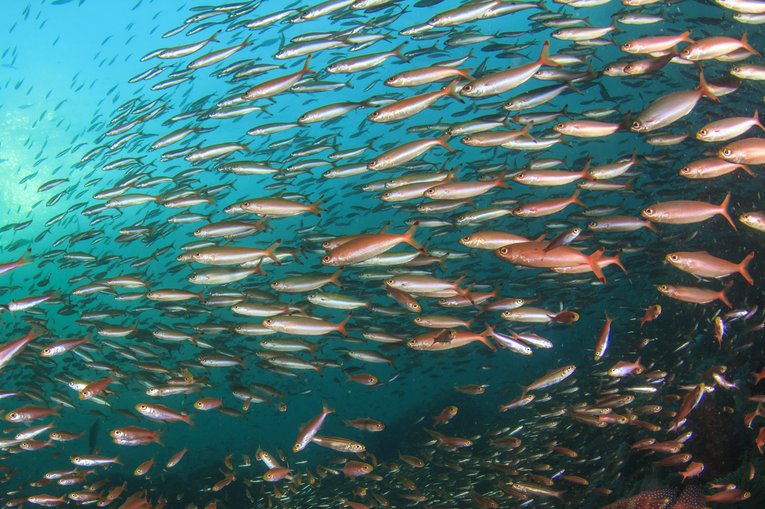
Treating sick corals in Turks and Caicos
3 minute read
We have worked to support marine conservation in the Turks and Caicos Islands (TCI) for nearly two decades, building strong links with our local environmental partners.
One of our key allies, the Turks and Caicos Islands Reef Fund (TCRF), have been tackling a highly lethal coral disease.
Stony Coral Tissue Loss Disease (SCTLD) affects over 20 species of reef building corals and was first discovered in the TCI in 2019. Once a coral colony is infected, the entire colony is expected to die within days depending on the size and resistance towards the disease. This is a big concern as these reefs, incredibly rich with marine life, help support local fishing livelihoods as well as a vital tourism industry.
One ray of hope is that researchers in Florida, have developed a highly effective treatment. The treatment – an antibiotic ointment - is applied by the technique of scuba diving. Test results from over 200 colony treatments have shown that it is nearly 90% effective in stopping disease progression.

Credit: Rich Carey via Shutterstock
There are many species of coral that are not susceptible to this disease, specifically soft corals. Unfortunately, the slow-growing reef-builders that are important to the structure of the reef, fish habitat creation and coastal protection are at risk.
On the treatment front, at the first test site, two weeks after the treatment was applied, 92% of the treated colonies had no progression of disease, the other 8% required a re-treatment. At the two-month post treatment visit, the success rate was 100%. Also, at the two month post treatment visit, all the untreated colonies were dead.

As a result of the treatment’s success, TCRF are anticipating to receive approval to expand the treatment effort. This will enable various reef sites across the archipelago to be treated against this disease.
Amdeep Sanghera, MCS UK Overseas Territories Officer said: “The Turks and Caicos Islands Reef Fund’s studies shows the real importance of everybody working together in order to conserve what we can of these coral treasures. MCS has financially supported them in doing this vital work and we very much hope that government approval to expand treatment efforts will enable the Turks and Caicos Islands Reef Fund to continue to save TCI’s incredible coral reefs and the biodiversity that depend upon them.”

Credit: Alizee Zimmermann
The Turks and Caicos Islands Reef Fund SCTLD Project Manager Alizee Zimmermann said: “We now have over 50 trained divers who will be assisting in the survey work to monitor the spread of the disease and identify hotspots and over a dozen divers trained on the treatment protocol. This is an expensive and time-consuming effort, but one that is necessary if the TCI is to continue to have some of the best unspoilt reefs left in the Caribbean region.”
Follow the progress of the treatment and of the Turks and Caicos Islands Reef Fund by visiting their website or following them on social media - Facebook, Instagram.


